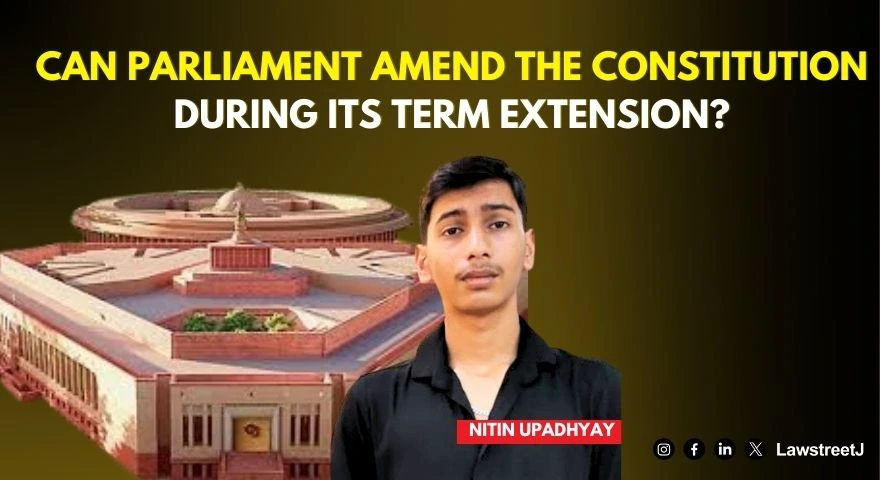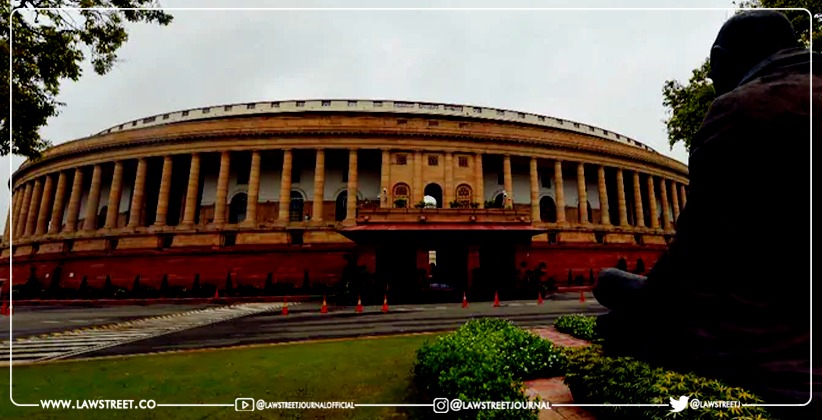New Delhi: In times of an emergency, Parliament may be extended by a term of one year at a time. But which powers does it possess during this period? Can constitutional amendments be made during such a period?
It is settled that constituent powers and legislative powers of the parliament are different. This distinction arises from mainly two reasons and one corollary: their origin and extent and their tenure. Before proceeding to these, let us see an overview of constituent and legislative powers.
The Constitution of India, when made by the constituent assembly, gave protection to certain rights of the people and gave a definite structure to the country, delineating powers of the Centre and the States. It also placed certain limitations on some rights. This was done through the exercise of the constituent powers of the assembly. This power is more of a duty than a privilege and can also abridge the rights as long as they are not abrogated. Being extraordinary in nature it shouldn’t be used ordinarily. Though Legislative power cannot be used capriciously by the government either, it is more ordinarily used than the constituent power.
The origin of the constituent powers may be categorised in three main reasons- (a) Will of the People, (b) Welfare of the People and (c) Changing needs of the country. Note that, we are not seeing the origin of these powers in the Constituent Assembly but rather in the contemporaneous State. My views might not be agreed upon as some would say that the Government can amend the constitution according to their will. Though it might be true, the fact remains that even their discretion will be counted as a reflection of the Will of the People. On the other hand, the Legislative powers originate from three main reasons- (a) Will of the People, (b) Welfare of the People and (c) Administrative Necessity. Here too, the Will of the People gives discretionary powers to the government. Legislative powers are regulated by Article 13 which prohibits the government from making any law abridging or abrogating the fundamental rights. Though in terms of extent, Legislative powers are pervasive in day-to-day aspects of life, Constituent powers occupy a higher position in terms of their importance as it affects the ‘Grundnorm’.
Logically, all powers should come to an end when ‘Will of the People’ is extinguished i.e. when the tenure for which the people elected the government is over. But the ‘State’ cannot operate/work if there is a vacuum in the centre. Thus, to combat this administrative necessity, the government extends its own legislative power by extending the parliament. Contrarily, Constituent power helps the constitution to adapt according to the changing times, but this change happens gradually. It may not be termed as an administrative necessity because it won’t have any adverse effects on the country if the amendment is not made instantly. Constituent powers come to an end, the instant the ‘Will’ ends. Being more of a duty than a privilege, the government doesn’t have any power to retain it without the people’s approval.
Granting such immense power to an entity and simultaneously giving it the power to perpetuate it too, would be to allow arbitrariness in state action which is the constitutional anathema. The legislative power’s extension may be condoned (not accepted) due to our own necessity. But a power which can amend the rights which we have been guaranteed under the Constitution and the fabric of this Country’s structure, is best not given indefinitely into the hands of anyone, let alone politicians.
Another crucial aspect of the Parliamentary process of making laws and amendments is the presence of opposition and deliberation with them. Because amendments are made for the welfare of the people, at least their representatives must be given a fair chance to voice their opinions. In the course of extension of parliament during emergency, the fundamental rights are suspended. It would be irrational to expect the representatives to give a vociferous and robust opposition during such a period. An ordinary legislation may be passed for some basic administrative processes but constitutional amendments are far too important and impactful to be passed without due deliberation. The amendment can be brought about once the emergency ends. In light of the discussion, it becomes clear that during the extension of Parliament, the exercise of constituent powers should unequivocally cease. The power to amend the Constitution during such times poses a significant threat to the foundational principles of our democracy, given the suspension of fundamental rights and the lack of robust opposition. By comparatively analysing legislative and constituent powers, it is easily deducible that the latter is far too great to be wielded in unruly times. Therefore, it becomes imperative to restrict the use of constituent powers during period of emergency to preserve the integrity and sanctity of our Constitution.
The author of this article is Nitin Upadhyay (BA-LLB: 1st Year, ILC, Faculty of Law, University of Delhi)







![Number of Constitution bench matters reduced drastically over decades, Lok Sabha informed [Read Statement]](/secure/uploads/2023/08/lj_1613_Constitution_bench_cases_sc.jpg)
![Amicus curiae supports plea for permanent disqualification of convicted lawmakers [Read Report]](/secure/uploads/2023/09/lj_2142_39a30518-7616-4c47-8f64-5f81898860ae.jpg)







